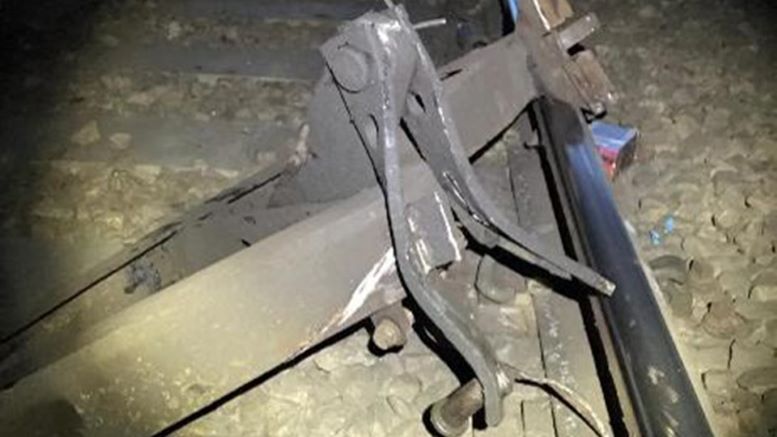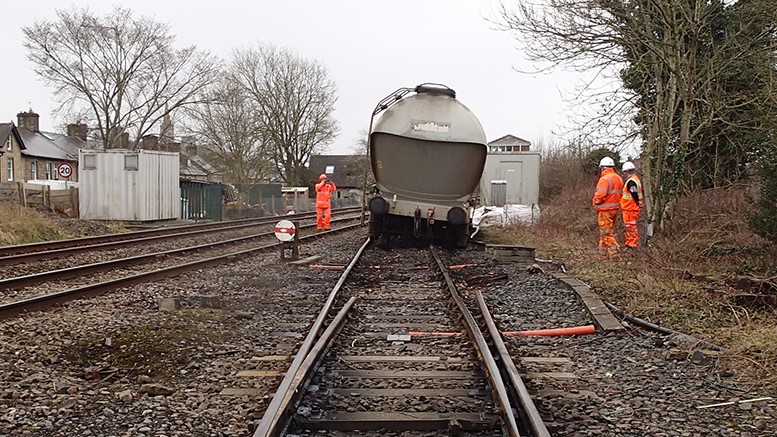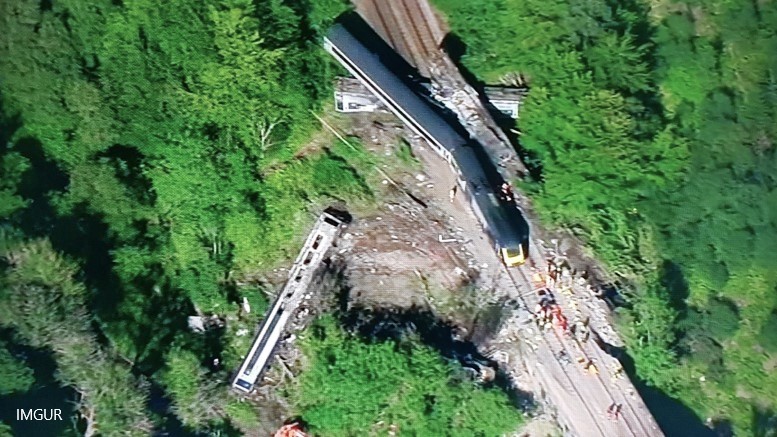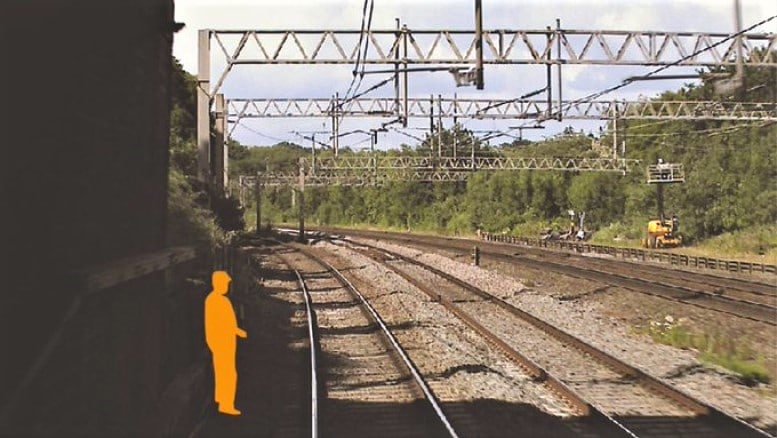
The Rail Accident Investigation Branch (RAIB) has released a ‘Safety Digest’ following the derailment of a freight wagon at Carpenters Road North junction, near Stratford in East London, on 11 June 2019. Although it re-railed at Carpenters Road South junction, some 400 metres later, the derailed wagon damaged sleepers and signalling equipment, and broke a rail, before it did so.

and re-railed at Carpenters Road South junction,
some 400 metres later.
The conclusion was that the wagon derailed due to errors made at its last maintenance, on 10 April 2019, when wheelsets were replaced. Evidence suggests that a split pin was not fitted and this, over time, allowed a securing pin in the brake system to work itself out. This led to “a substantial part” of the brake system falling onto the track and being run over by another wheel, derailing the wagon.
Safety loops, designed to catch detached equipment and prevent it from falling onto the track, had not done so in this case.

A second securing pin, at the other end of the same wagon, was “almost out” with no sign of its split pin, suggesting that this had also not been fitted after maintenance.
The RAIB reported that the maintenance in April was carried out in a “sub-optimal open-air location with no pit or other arrangement to facilitate convenient access to the underside of vehicles”. It also highlighted RSSB research which indicated that environmental conditions, such as poor lighting and extremes of temperature or weather, can increase the likelihood of errors.

A similar failure on the same type of wagon had occurred in 2001. In 2011, a wagon derailed in Scotland, damaging two level crossings, in similar circumstances and the ensuing RAIB report concluded that the most probable cause was the failure of a split pin.
Then, in 2017, a wagon derailed in Wales because split pins were not replaced when brake blocks had been changed, again by technicians working in sub-optimal outdoor conditions.
Although a Safety Digest does not make recommendations, the RAIB highlights:
- the potential for a sub-optimal working environment to increase the likelihood of errors when undertaking maintenance activities;
- the importance of checking that securing devices, such as split pins, are correctly fitted following maintenance, and the serious consequences which can result from not doing so;
- the importance of the effective positioning of safety straps and loops intended to prevent large components falling onto the track if they become detached from vehicles.
It does seem that, in the modern world, working on safety-critical items on freight vehicles in the open air, where there are no facilities, is not a good way to be doing maintenance. Surely putting such activities into a workshop, with proper facilities and where work can be checked and recorded, isn’t too much to ask?





Be the first to comment